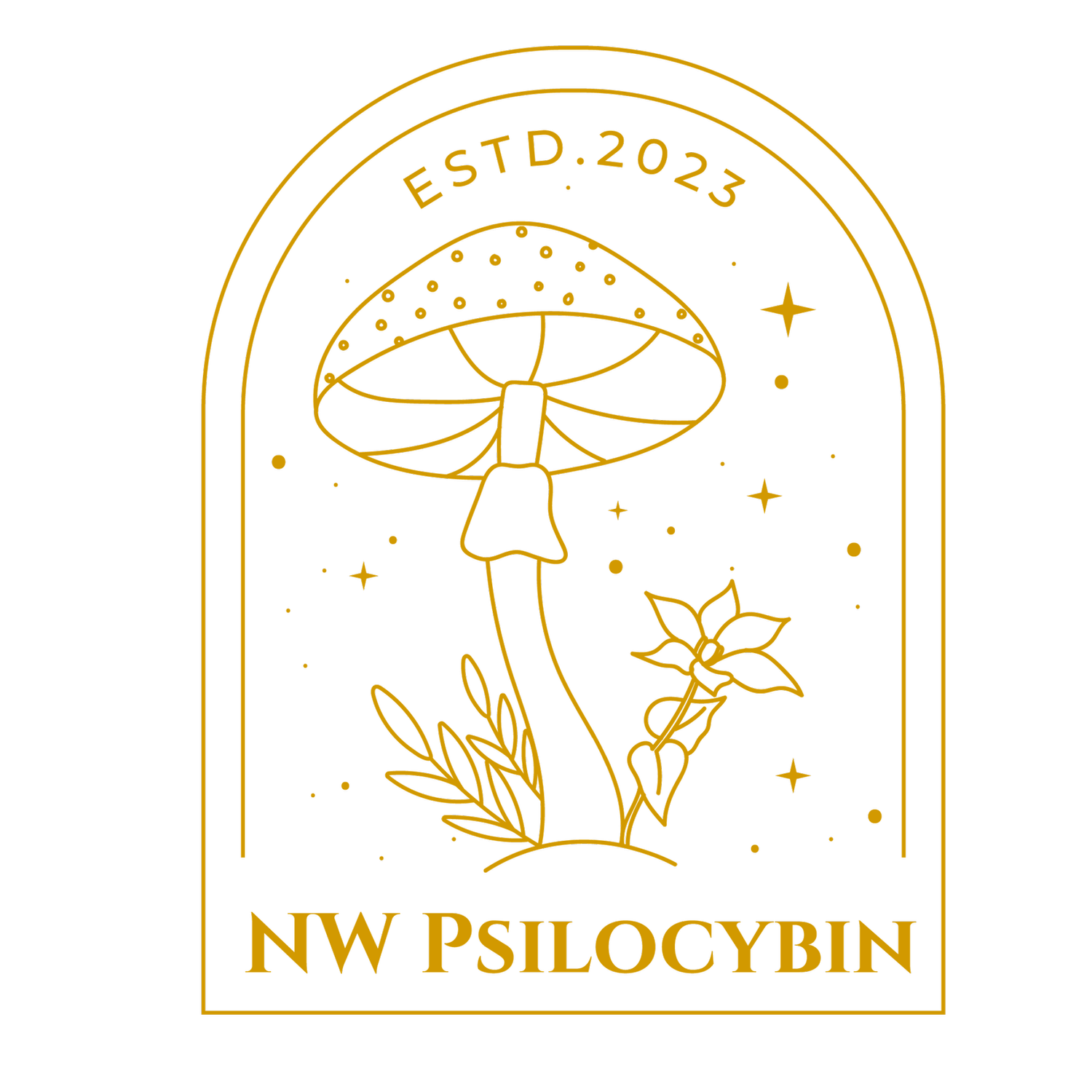NW Psilocybin, Social Equity Plan
My name is Patrick Winczewski and I am a psilocybin facilitator. My current platform is a website, nwpsilocybin.org. I am an able bodied, cis gendered, caucasian, male and I live on land once occupied by the Kalapuyan people. I was born and raised in Oregon and am passionate about all types of mushrooms. I am honored and excited for the opportunity to work with this powerful medicine.
This Social Equity Plan will describe my personal intent, future goals, and highlight recent accomplishments that will prepare me to serve as one of the first licensed psilocybin facilitators in the state of Oregon. Listed below are 3 initiatives that will be the focus of NW Psilocybin and with each initiative is a qualitative goal to be completed within the first year of licensure. Each of these initiatives support equitable care and access to psilocybin services.
1. Personal improvement and continuing education. I recently graduated from Synaptic Training Institute, where I learned many skills, and met some wonderful mentors and additional professionals in the psilocybin space. I understand that, while my training was thorough, mental health is a multifaceted discipline, and requires continuous learning to make sure I’m providing the best care possible. I will continue to train, and develop professionally to increase my scope, and skills to better serve all clients. Already I have taken additional education courses focused on Suicide Prevention and Grief Counseling. I am looking to focus my education in the next year on Safe Space Training, Eating Disorder Treatment, and ways to better serve the Veteran Community.
My goal is to complete 4 additional training/courses in the first year of licensure.
2. Referral network. One of the most important steps to access psilocybin is the preparation/intake process. A large percentage of clients will have no experience with psychedelics. It is crucial to screen clients appropriately to ensure they are receiving the appropriate level of care. While I am continuing to grow as a facilitator, I recognize that occasionally clients will require more specialized care than I am capable of providing. An important part of the preparation process is to first, make sure psilocybin is safe for them to use, and second, make sure that the services I am able to provide will meet the clients needs. If psilocybin can work for them, but I cannot, it is critical to have a robust referral network consisting of other psilocybin facilitators as well as a diverse professional network to best suit the client's current or future needs. The professional network should have a diverse selection of various professionals meant to support the physical, mental, or spiritual needs of the client. The referral network must have adequate diversity and representation of minority groups, and specific support for the LGBTQ+ and veteran communities. Additionally, the referral network will provide convenient suggestions for necessary amenities like transportation and translation services.
My goal in the first year of licensure is to create a referral network/professional directory of 10+ individuals or communities who can help clients with their diverse needs.
3. Community education and outreach. Many people are unfamiliar or uncomfortable with the idea of psilocybin therapy. Many don’t know what to expect, have only heard anecdotal stories, or have heard about the negative aspects of psilocybin when used recreationally. Not to mention the generational trauma and terror that still haunt us today thanks to the ‘war on drugs’. The Federal Government and our most powerful institutions are still anti-psilocybin, and the stigma has been steeped into communities that may benefit most from the medicine.
Below are a couple examples of my recent contribution to public education for psilocybin, and outreach into my local community:
In August 2022, the Albany city council was meeting to discuss the measure 109 opt-out vote for the November ballot. I attended both meetings, and gave positive arguments for why my city should not opt-out of psilocybin therapy. I brought and referenced several articles describing the effects psilocybin has on addiction. Others provided positive comments for psilocybin with anecdotes. Ultimately the city council agreed to allow measure 109 to continue without a moratorium.
Second was in April 2023, at the Darkside Theater in Corvallis. They were showing the film Dosed, a documentary following a woman’s journey after being diagnosed with a terminal illness. The film is based in Vancouver, BC. At the end of the two main screenings, I co-hosted a live Q&A session introducing Oregon’s model for psilocybin therapy and answering any questions the audience had.
Hearing about psilocybin first hand from a licensed professional will help reinforce the validity, and safety of psilocybin medicine while also helping to normalize everyday conversations about mental health. My plan is to connect with the local LGBTQ+ and Veteran population in the mid Willamette Valley, and provide education and resources to those who are curious, or simply unaware of the benefits of psilocybin. In addition to connecting with people at physical events, nwpsilocybin.org will be updated periodically to ensure the community is able to stay up to date with OHA and Psilocybin therapy in Oregon.
My goal for the first year of psilocybin service is to attend 2+ events, providing information, resources, and answering any questions that the public has regarding psilocybin therapy.
Thank you,
Patrick Winczewski
NW Psilocybin
nwpsilocybin.org
(541) 936-9993
Oregon Health Authority
Oregon Psilocybin Services
Oregon Psilocybin Services has created a set of administration rules that completely defines the scope of psilocybin access in Oregon. There is also a lot of good information about other service providers in the state, as well as information if you want to become licensed! Information can be found by clicking the button below.
FIRESIDE PROJECT: Free psychedelic support hotline
The Psychedelic Peer Support Line provides emotional support during and after psychedelic experiences.
Call or text 62-FIRESIDE.
Open everyday 11:00 am - 11:00 pm PT.


